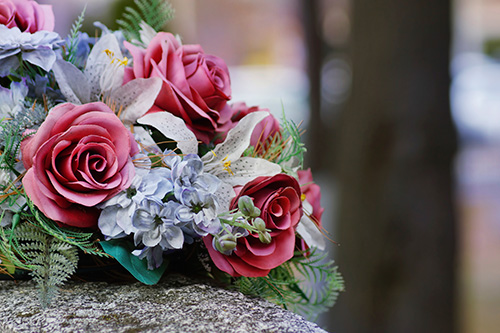
The Fountain
 The Fountain shares its condolences with the families and friends who lost their beloved ones in what appears to have been a crime of racist hatred in Charleston, South Carolina. We condemn the attack regardless of any reasons that motivated it.
The Fountain shares its condolences with the families and friends who lost their beloved ones in what appears to have been a crime of racist hatred in Charleston, South Carolina. We condemn the attack regardless of any reasons that motivated it.
During times of tragedy like this, when everyone seeks answers to questions like "why?" and "how?" we are reminded of the lead article in The Fountain's very first issue. It was on compassion.
"Compassion is the beginning of being; without it, everything is chaos. Everything has come into existence through compassion and by compassion it continues to exist in harmony."
All religions have compassion at their basis. The Fountain, as such, takes compassion as its very mission statement. The best way to fight hatred and potential hate crimes is not with anger or more violence; it is with love. This is the timeless message faith teaches us. By condemning racism, we are celebrating diversity. The Fountain has always tried to spread a message of diversity and love, and it will continue to do so, because it is only through education and awareness that we can eliminate the true seed of hatred and intolerance: ignorance.
In an article by Alphonse Dougan in 2006, the author uses a poem by Rumi to summarize why praising the beauty of compassion is a must, rather than solely discussing acts of hatred:
When the full moon shines on a clear night,
What would it have to fear of the dogs or their barking?
The dogs continue to do what they are supposed to do
And the moon continues to beautify the face of the night.
Throughout our issues, we've devoted many articles to combatting racism. Religion is particularly well suited to this cause; for, as Ekrem Dumanli wrote in his article "Media and Hate Messages," Satan was the first racist. He claimed that he was superior to others, and therefore deserved special privileges.
"Since this early racist dialectic, all racist groups and their followers have used similar arguments to justify their beliefs and prove that they are the best. The result of such an effort has been a very bloody history."
It isn't just a religious imperative to stand up to such claims; as Daniel Hummel's 2015 article emphasizes, condemning hate crimes is a duty upon every human being: "Responses to hate speech are to be measured with a strong foundation of forgiveness and patience, but it does merit a response. Hate speech and its potential negative effects have to be addressed either by calling attention to it through research, lobbying, providing counter messages and rallies, and legal actions, if needed."
Combatting violence and standing up for human rights begins at home. We must practice compassion, forgiveness, and understanding in our daily lives. Only when we truly live a life of love can we begin to overcome the deep chasms that some people use to divide us. We cannot look at someone of a different faith, ethnicity, or color and see "an other"; we must look at them and see a friend and fellow human being. Above all, this is what The Fountain strives to do.
Let's conclude with a quote from James C. Harrington, who initiated the Texas Civil Rights project in 1990, which included the Violence Against Women Act program for immigrant women in Texas. The project educated more than 50,000 lawyers, offering more than 3000 pro-bono legal services to combat violence. In his article, Harrington names Fethullah Gulen, Eleanor Roosevelt, and John F. Kennedy as the sources of inspiration in his struggle for international human rights:
"The struggle goes on, building on those who went before us, for the benefit of those who come after us. Eleanor Roosevelt put it well in her remarks at the United Nations in 1958:
'Where, after all, do universal rights begin? In small places, close to home - so close and so small that they cannot be seen on any maps of the world. Yet they are the world of the individual person; the neighborhood he lives in; the school or college he attends; the factory, farm or office where he works. Such are the places where every man, woman, and child seeks equal justice, equal opportunity, equal dignity without discrimination. Unless these rights have meaning there, they have little meaning anywhere. Without concerned citizen action to uphold them close to home, we shall look in vain for progress in the larger world."
We offer up our thoughts and prayers to those who are suffering right now in Charleston. And we vow to continue the stand for equality and human dignity.









